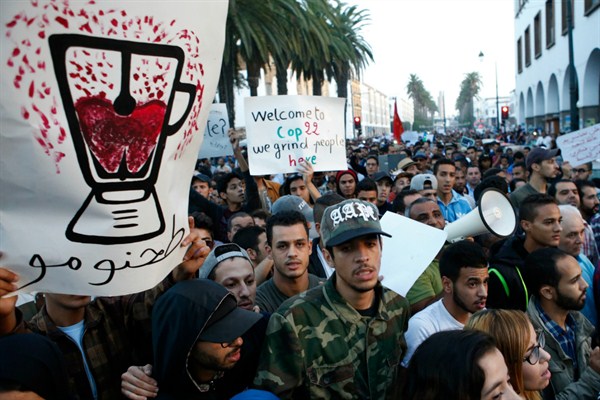On Friday, Mouhcine Fikri, a fishmonger in the northern Moroccan town of Al-Hoceima, jumped into the compacter of a garbage truck in an attempt to salvage some $11,000 of fish that had been confiscated by the police. He was subsequently crushed to death. Footage of the carnage was shared widely online.
Moroccans immediately took to social media, decrying “hogra,” a term used to describe injustice at the hands of the government. Angry posts turned into mass protests, which began Sunday in the Rif region and spread across the country. Some protesters called Fikri’s death premeditated. The demonstrations, which are ongoing, have largely been peaceful.
Fikri, 31, was initially stopped by police for possessing more than 1,000 pounds of swordfish, which had been caught illegally out of season. But protesters have used the incident as a springboard to condemn government injustice, police abuse and economic inequality, which plague the Rif region disproportionately compared to the rest of Morocco.

